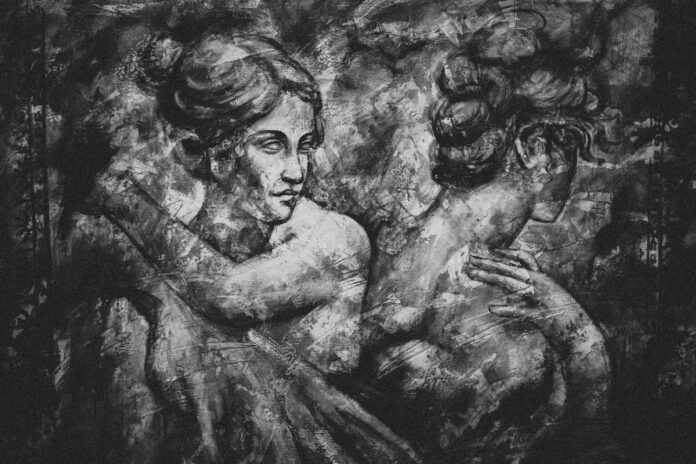The Future Past
We strolled along a clay path in Frick Park where leaves fell
like heroes’ confetti and where our past rambled toward us
from out of our future, just as Heidegger professed.
Our past came at us in the form of three sets of former
friends we hadn’t seen in years. A simple walk
transformed into something incredible, but true.
Avery and Ivy recognized us before we did them. It was like
looking into a mirror ravaged by time. Forty years ago
we were often seen together, enjoyed dinners, played
with their kids. Avery’s affect was still flat as a crushed
toad in Bermuda, a bonus for a psychiatrist of his persuasion.
Ivy’s facial expression remained closer to the pitchfork than
the woman in Wood’s American Gothic. Our goodbyes
were perfunctory and mercifully short.
How the fabric of friendship unravels over time—
frays into unrecognizable remnants.
A first down later, Dr. Louise, a warden of the psychoanalytic
prison house, moseyed by. Her pseudo-smile the “blank screen”
Freud preferred his followers to project.
Refrigerated friendships don’t keep well. Once past their
expiration date, they emit an obnoxious odor.
Finally, Bella swept up to us. Her southern histrionics intact
after all these years. “So glad to see you,” she drawled,
then hugged us, her sentiments as serious as a mint julep.
She abandoned us years ago after one of us became ill.
Better this future/past passing than an eternal return returning.
Better to keep walking than to go home again.
The Ladies of Gee’s Bend
Only a few had running water, indoor bathrooms,
or electricity. They’d gather at a friend’s home,
form a circle, reach into cotton bags for needles and thread.
As they sowed, they’d talk of their struggles, their men,
some of whom were dead or disappeared or working
two or three bone-dreary jobs.
They’d talk about how their children played along the riverbank,
their futures of blight or light, how they walked to school
wearing socks darned damned near to destruction.
Those ladies gathered what couldn’t be worn anymore—even
rags found along roadways, fabrics colorful and dear,
stitched together to make quilts of intricate designs.
They sowed hope into those spreads. Nothing went to waste.
Their sausage-fingers expertly handled needle and thread,
sowed rectangles of blue, turquois, yellow, and black—
cloth sculptures with kaleidoscope patterns that could make
Picasso jealous, Chagall grin. The ladies of Gee’s Bend,
Alabama, made quilts that kept them, their men, and children
warm in dungeon months of no sunshine or heat—days
when frost crocheted patterns on glass panes, and yet sun
shone in those woven windows of care, color, and love.
When Hell Reigns
It was the odd smell they first noticed—the sweet odor
of newsprint ignited to blaze kindling and begin a cozy evening
at the hearth—stories of family and of favorite books.
The strangely comforting aroma enveloped the streets.
Some had just left the opera, or theatre, or favorite restaurant—
were bouncing in taxis along ancient cobbled streets, excited
about the play, the singers, or the succulent roast beef. What
horror when they arrived at the university in Dresden,
in this month of tulips, roses, and day lilies. 1933. Books piled
high atop one another: Freud, Brecht, Hemingway, Mann—
books contaminated by an “un-German Spirit.” Volumes looted
from libraries, bookstores, even private homes, set ablaze
by university students who only months before revered them.
Now, ignited by hate-flames, these students-no-more incinerated
decency and decorum. “The barbarians have taken over,” Joseph Roth
wrote his friend Stefan Zweig. “Do not deceive yourself. Hell reigns.”
[1] Mishra, Pankaj, “When the Barbarians Take Over,” New York Review of Books, November 2, 2023.
About the Author

Charlie Brice won the 2020 Field Guide Poetry Magazine Poetry Contest and placed third in the 2021 Allen Ginsberg Poetry Prize. His sixth full-length poetry collection is Miracles That Keep Me Going (WordTech Editions, 2023). His poetry has been nominated three times for the Best of Net Anthology and the Pushcart Prize and has appeared in Atlanta Review, The Honest Ulsterman, Ibbetson Street, The Paterson Literary Review, Impspired Magazine, Salamander Ink Magazine, and elsewhere.
















